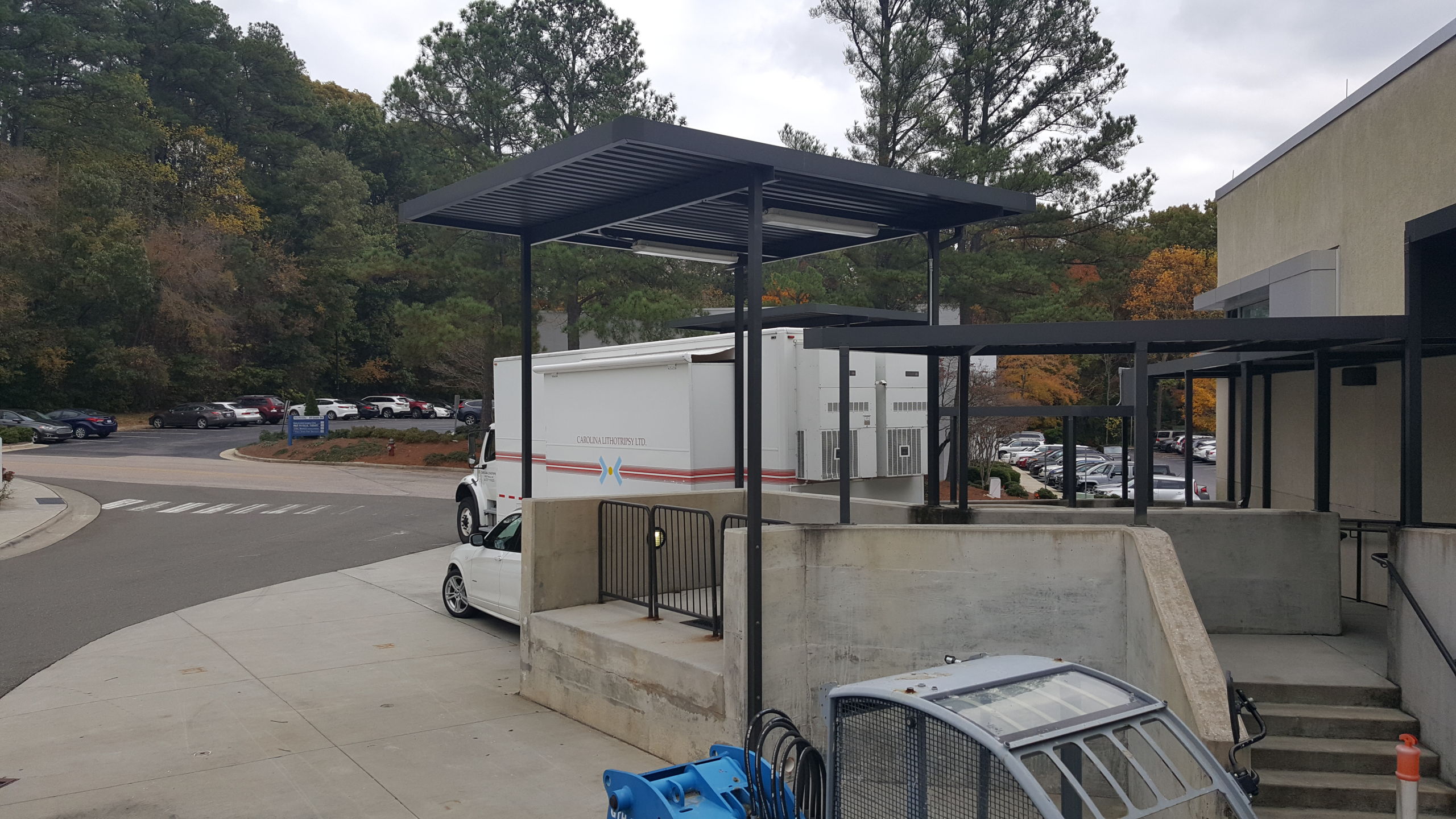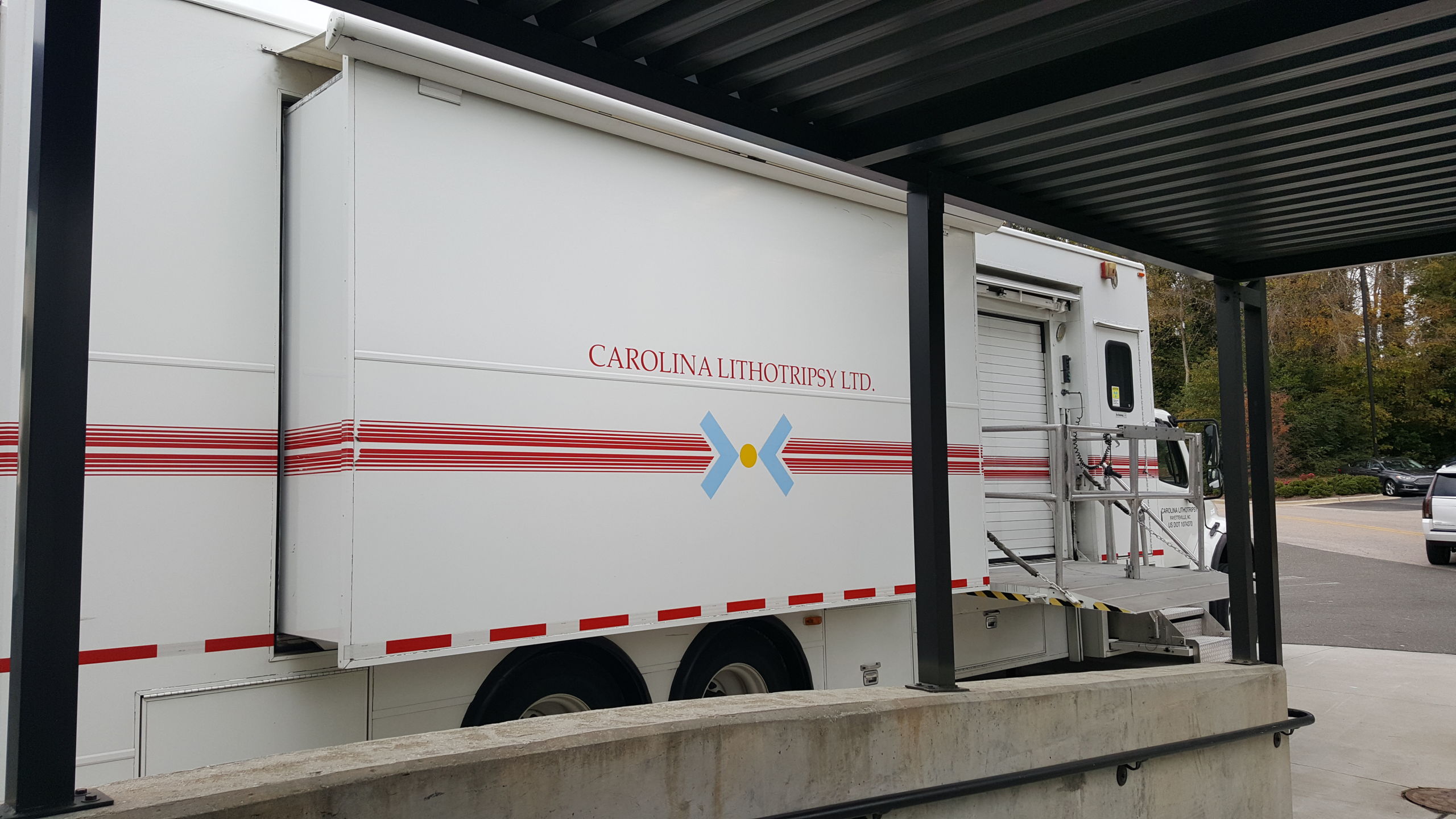In yesterday’s Daily Journal, I wrote about Certificate of Need laws. The issue moved from the theoretical to the concrete for me as I spent the past week nursing my husband through a pretty painful kidney stone and associated blockage. Every few hours, I administered more opioids. He missed a lot of work. It’s been a long week.
On Tuesday, I was in the waiting room of a major hospital in Raleigh, while my husband was having a lithotripsy to break up the kidney stone. Outside. In a truck.
You read that right. I took some pictures, just so you could see that I’m not exaggerating.


This is how it works. This major hospital isn’t allowed to buy its own machine, so it hires a truck that drives around all over central and eastern North Carolina. It comes here every few weeks.
It reminds me of high school when we had trailers behind the building that we used as overflow classrooms. We laughed about the trailers then. I never expected my husband would be having a medical procedure in a truck out back unless we moved to a remote part of the developing world. But there we were.
I asked a lot of questions while I waited. According to the doctors and nurses, they fill this truck up whenever it’s here. We waited more than a week. Every slot gets taken. There’s plenty of demand. When I told the nurse the very company that operates this truck applied last year for another machine, and was denied, she was visibly frustrated.
The cost is significant, too. I went onto some price comparison websites that give you a rough idea what you should expect to pay for various medical procedures. When I looked for lithotripsy without specifying a state, I got a range. The upper end wasn’t anywhere close to what we’re being charged.
When I specified North Carolina, the range shifted up by thousands of dollars. There are lots of factors affecting the cost of medical procedures, and CON is certainly one of them. In fact, when I told the urologist what this was costing us, he was shocked. He had absolutely no idea, but it was clear he’d never have dreamed it was anywhere near that much.
Which isn’t surprising. This 90-minute procedure, in a truck, without general anesthesia, carries a price tag of $29,000. CON is one reason why. There are lots of things that could be done to reduce the cost of health care, but getting rid of CON is one thing that the General Assembly could do now. And state lawmakers should.
Julie Tisdale is city and county policy analyst at the John Locke Foundation.